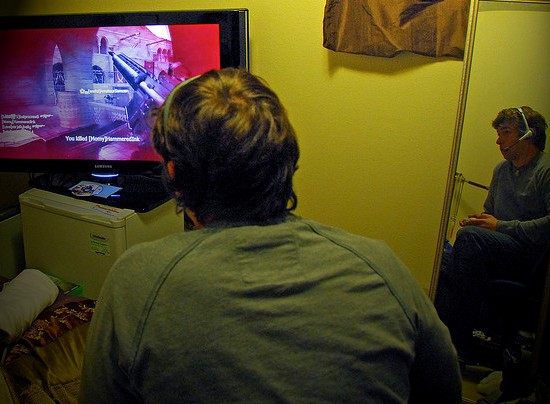
Saving for your kids? Find out how to make your money work harder with these savvy saving secrets (say that three times fast 🙂 ).
Unfortunately, you can’t guarantee how your child’s life will work out, how successful they’ll be or you’ll always be there for them. But you can plan how best to invest your savings now so your offspring will have some financial stability in an uncertain world.
With so many different strategies, systems and areas of potential investment, it can be impossible to identify what’s best suited to your current circumstances and what will provide the best return for your child in the future.
Will Thomas from Eccount money agrees
“it’s an area where research pays off, in more fiscal ways than your child’s gratitude!”
He urges parents to
“take the time to read, analyze historic charts and company news but most importantly, don’t forget to start early to reap the biggest rewards.”
Retirement Planning
It might seem strange to consider your child’s retirement before they’re out of nappies, but with Britain’s elderly currently feeling the effects of poor pension provision, it’s wise to do just that. Setting up and paying into a pension throughout your child’s life means that once they start earning, the financial burden will be somewhat alleviated. Standard Life explains that because your child’s retirement is so far away,
“The payments you make have a great potential for growth.”
The Government will also reward your advance planning by adding 20% tax relief to your contributions. MoneyFacts.co.uk warns
“you do need to think carefully about whether starting a pension is the best way you can help your child.”
As with all pensions, the money remains inaccessible until your child is 55, perhaps worth considering if you are concerned they may need to put the cash to use earlier in life; for housing deposits, weddings and the like.
Child Trust Funds
Your child will have a Child Trust Fund (CTF) if they were born between 1st September 2002 and 2nd January 2011. This involved the Government paying in a sum of between £50 and £500, on top of which you may pay in up to £3,720 annually on a tax-free basis. The money is accessible after the child comes of age, and you can shift it between providers to get the best rate.
There are both “savings” and “investments”- type CTFs; choose the former if you want a solid nest-egg, and the latter if you can afford to gamble on the possibility of a greater return. Wisdom has it that banks are less focused on Child Trust Funds since their cessation, so it may be advisable to avoid using it as your sole savings fund.
Children’s ISAs
These tax-free junior saving schemes aren’t available to everyone – if your child was born between 1 Sep 2002 and 2 Jan 2011, they are instead eligible for a Child Trust Fund. Plans usually start from a base payment of £10 per month – a pretty easy sum to scrape together. You or your child (up to the age of 18) can pay in more if you, or they, have the means – up to a total of £3,720 per tax year.
Unfortunately, unlike the Child Trust Fund, the government makes no contribution to a Junior ISA. If you’re confused by the range available and the terms involved, look online for unbiased comparisons that break down the specifics. Juniorisas.org offers a comparison chart and overview for what’s on the market. ISAs come in two forms – cash or stocks and shares. With the former, interest is not taxed, with the latter, returns are mostly tax-free. To find one that best suits, talk through terms with your provider before committing.
Children’s Bonds
Children’s Bonds are renewable bonds from National Savings and Investments, with a five-year lifespan. Familycash.org.uk says a “parent or guardian controls the Bond (regardless of who bought it) until the child reaches the age of 16. At this time the child takes control of the Bond.” Owing to the NSI’s Government backing, you can feel assured the money you invest here is safer than in some lesser-protected schemes. The fixed-rate interest means you know the guaranteed return from the point of purchase, whether you choose to buy the minimum £25 bond or the maximum £3000.
Only the parents, guardians and grandparents of a child are legally allowed to purchase bonds. Children’s Bonds come with the flexibility of the ‘cash-in’ option each 5 years, or the choice of continuing to save until the child hits 16. Although the scheme offers security, the interest accrued is not a great amount and, as The Money Advice Service warns,
“there’s a chance the money may not grow fast enough to keep up with rising costs.”
Education
If you’re planning for your child to attend a private school, paying into a dedicated school fees savings account can help ensure they get the education you’ve chosen. The Daily Mail says
“private school fees have risen sharply over the past decade and, as the recession has bitten, paying for education has become far tougher.”
Starting early pays dividends. If your child displays a particular aptitude for a subject or has creative talent, it’s worth identifying specialist schools and scholarships they may be keen to apply for.
Many private establishments also offer bursaries which can help financially-struggling families with fees. If the child’s grandparents can assist, regular piecemeal contributions will mostly be free of the Inheritance Tax they’d incur if the full sum was gifted after death. Also consider catchment areas – and the idea of moving to a neighborhood providing the best education prospects.
General tips
There are numerous ways to save for your child’s future, all with their own merits and pitfalls. Before making your ultimate decision, it’s worth doing some serious online and in-person research and considering how you believe your money could best help contribute to your child’s financial future, and at what life-stage you’d like them to be able to make choices about how to use the cash you’ve put aside.
Featured images:
 License: Image author owned
License: Image author owned
Based in London, Gavin Whittaker writes about personal finances daily and believes the best thing parents can do for their children is start a nest egg in a high yield interest account.
Did you learn something from this post? If you did please don’t keep to yourself, share it with your favorite social media. Thank you.






